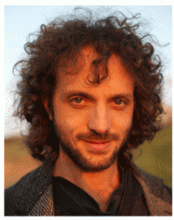Improvising science
Talk by Asaf Bachrach, French National Centre for Scientific Research
Info about event
Time
Location
IMC Meeting Room, Jens Chr. Skous Vej 4, Building 1483-312
Organizer

Abstract
As anyone who has practiced dance improvisation (e.g. traditional dances, social dancing, contact improvisation) can attest to, improvising in a group or with a partner often evokes a subjective sense of “togetherness”. In recent years the study of “togetherness” has gained interest within social neuroscience and psychology (De Jaegher & Di Paolo, 2007). Togetherness has been reported and studied in a variety of contexts but in particular in the case of joint-movement or joint-action. The focus of most of these studies and associated theoretical models has been temporal synchronicity and/or mirroring of movement between partners (Dahan et al., 2016).
Our transdisciplinary project “from joint improvisation to interaction” (ICI), where dancers, scientists, and philosophers research together through movement, includes studio explorations of the emergence and dynamics of togetherness during dance improvisation. By confronting our practices of improvisation with the above empirical research, we observe that while the empirical research focuses on synchrony, togetherness in dance improvisation is not limited to it. Phenomenologically, it seemed to us that togetherness is less the consequence of synchrony per se than of the subtle intersubjective negotiations it requires.
In order to shed further light on the subtleties of how and when "togetherness" occurs, we designed variations on existing paradigms (such as the mirror game, Noy et al 2011, and conversational turn taking, Himberg et al, 2015) and created novel improvisational scores inspired by work of Lisa Nelson, Meg Stuart and others. In this talk, I will present a number of these GIGs (group improvisation games), discuss the design principles that guided their development, and share some preliminary results.
About the speaker:
Asaf Bachrach, NCSR, Paris, France
Labodanse.org
